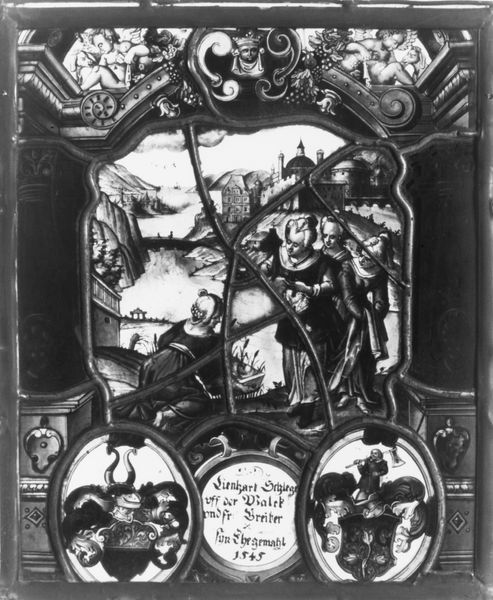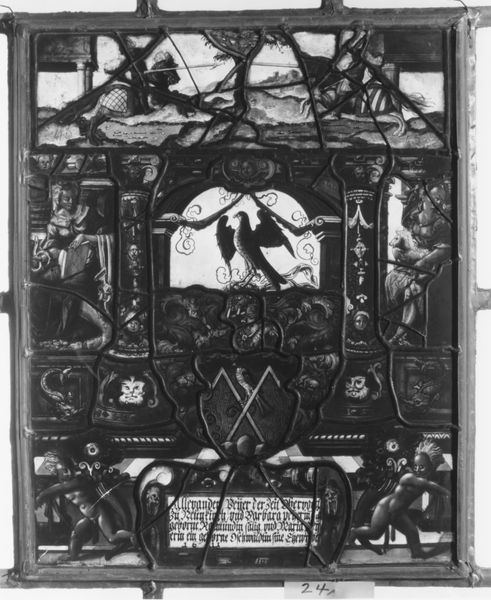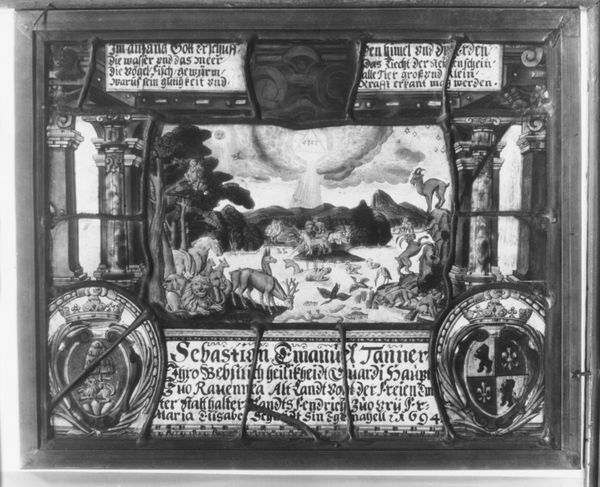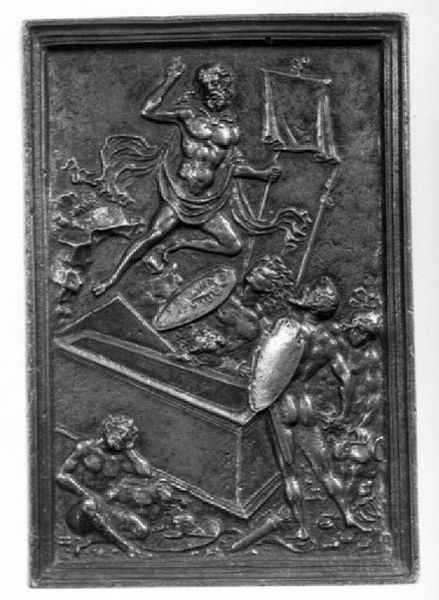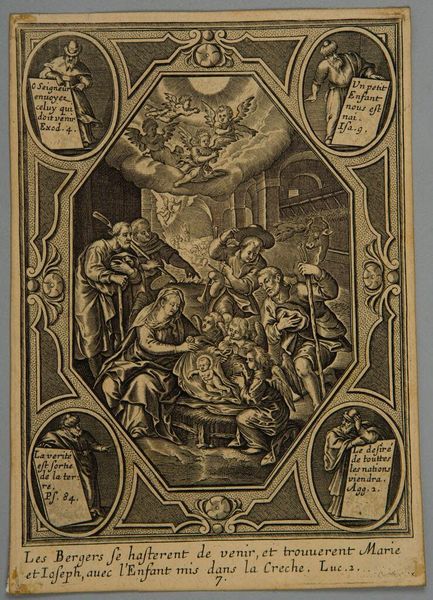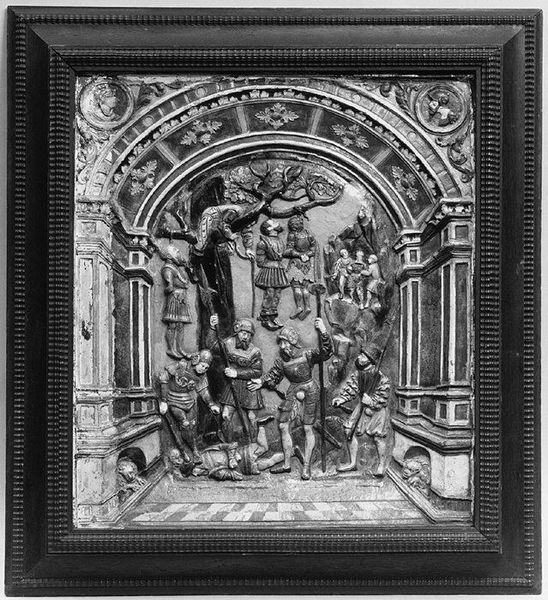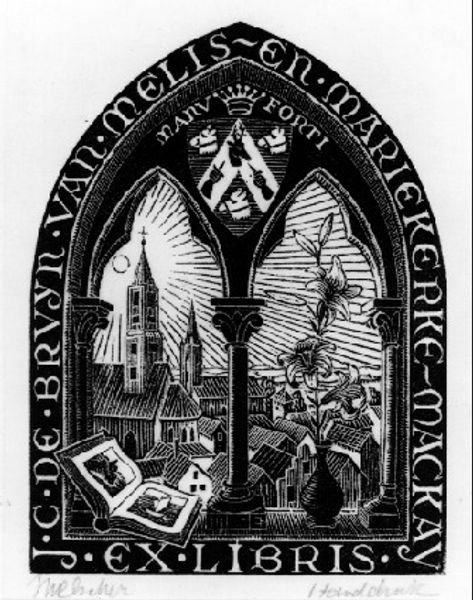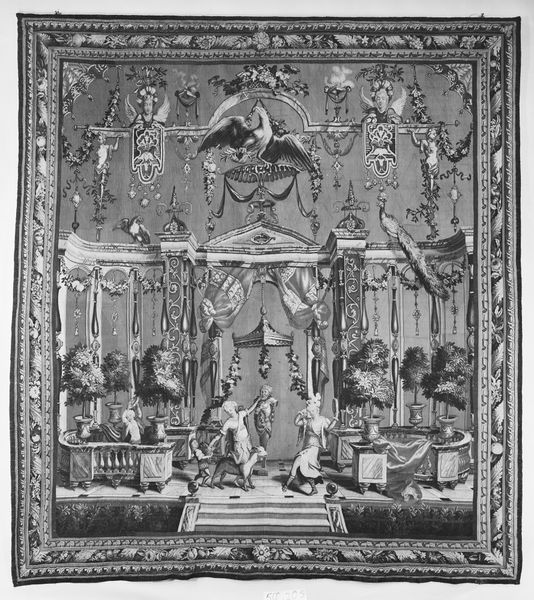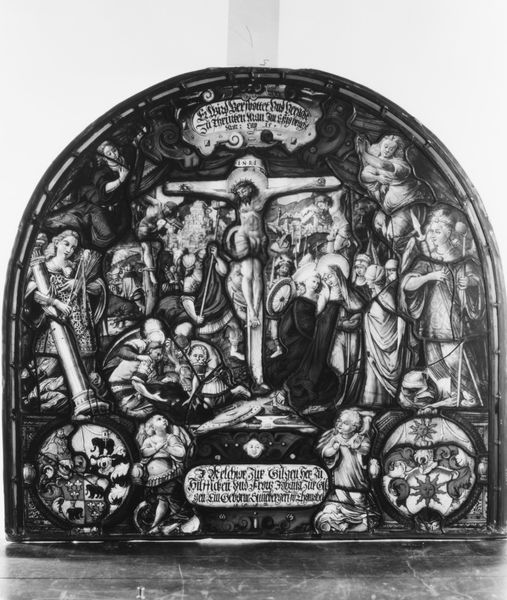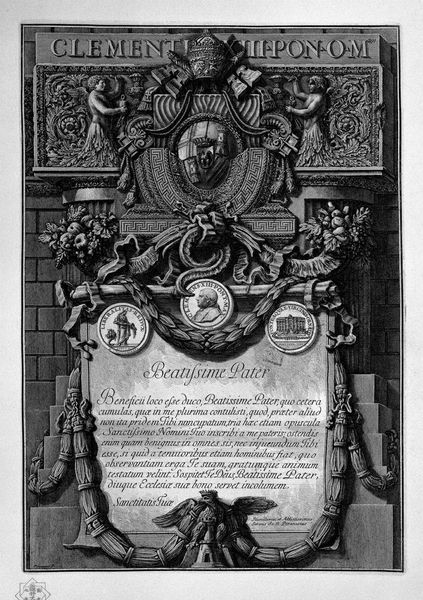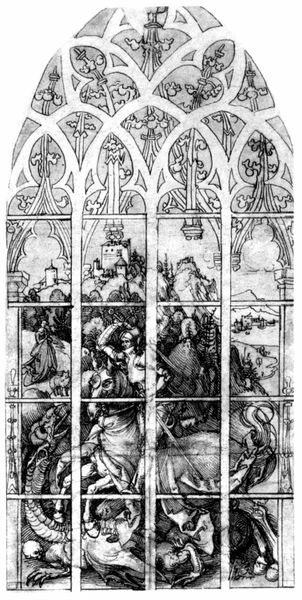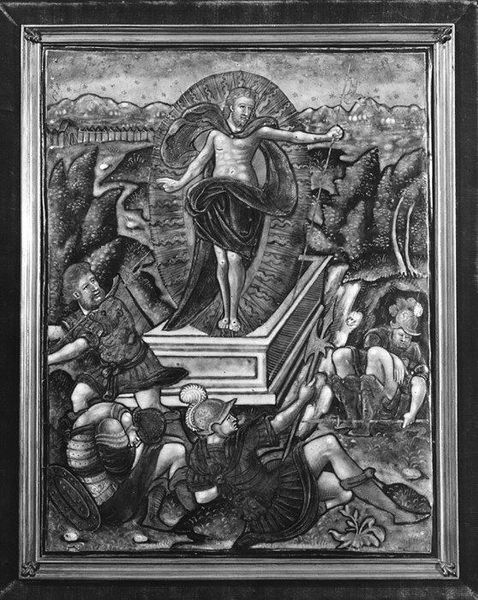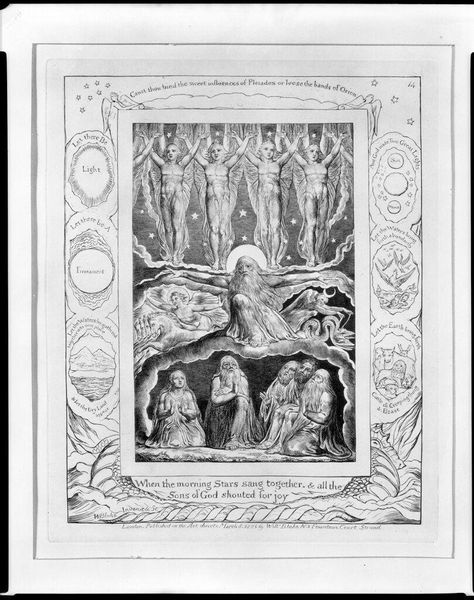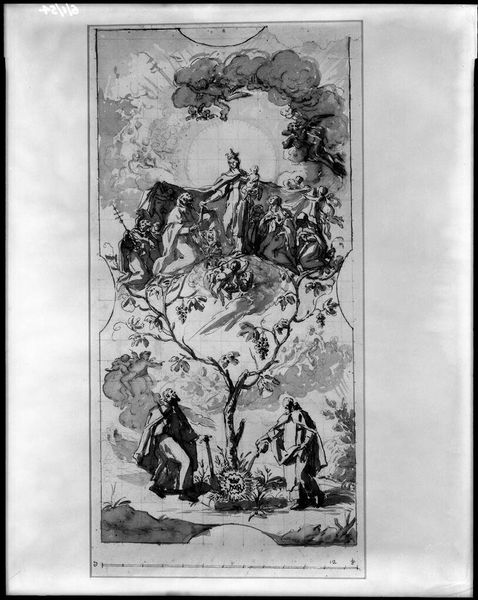
glass, sculpture
#
medieval
#
narrative-art
#
sculpture
#
figuration
#
glass
#
geometric
#
sculpture
#
men
#
history-painting
#
decorative-art
Dimensions: Overall: 10 × 12 in. (25.4 × 30.5 cm)
Copyright: Public Domain
Curator: What a complex visual arrangement. Editor: Indeed. The piece before us, entitled "The Passing Over the Red Sea," dates back to 1545. It’s attributed to a St. Gallen workshop and crafted from glass. The artisans have rendered this pivotal biblical moment in an unusual form. What do you make of its structure? Curator: Immediately, my attention is drawn to the fragmentation. The scene, instead of a unified plane, is presented through a series of geometric panels, each containing distinct moments of the exodus narrative. This creates a sense of simultaneity and fractured memory, as though we are glimpsing the event through shattered time. Editor: I see it. The emotional heft of the scene isn't just about bodies in motion, it’s about that dramatic moment— the parting of the waters representing freedom. Then, look above, we have cherubs witnessing from above. In that historical and symbolic context, consider also that it's not just an exodus, it is also a glass piece commissioned with two family crests at the bottom, so we are clearly commemorating family. Curator: Precisely! It seems this isn't just a depiction of a famous narrative, it's an artful arrangement of light and form using iconography, and that gives shape to both biblical narrative and social history. The artists emphasize the medium, glass. Each lead line further divides and accentuates. Notice the cherubs? Editor: That tension adds to the narrative’s symbolic weight. Glass, itself, as something both fragile and illuminating becomes symbolic of both spiritual and material significance of the story of the Red Sea crossing in the commissioning family's history. Curator: Well said! It seems the piece's strength resides in its composite structure as the eye wanders around, each fragment working off the others to construct a dense interplay. Editor: Looking closely at this piece certainly adds more layers of narrative and emotional context than I initially anticipated.
Comments
No comments
Be the first to comment and join the conversation on the ultimate creative platform.
